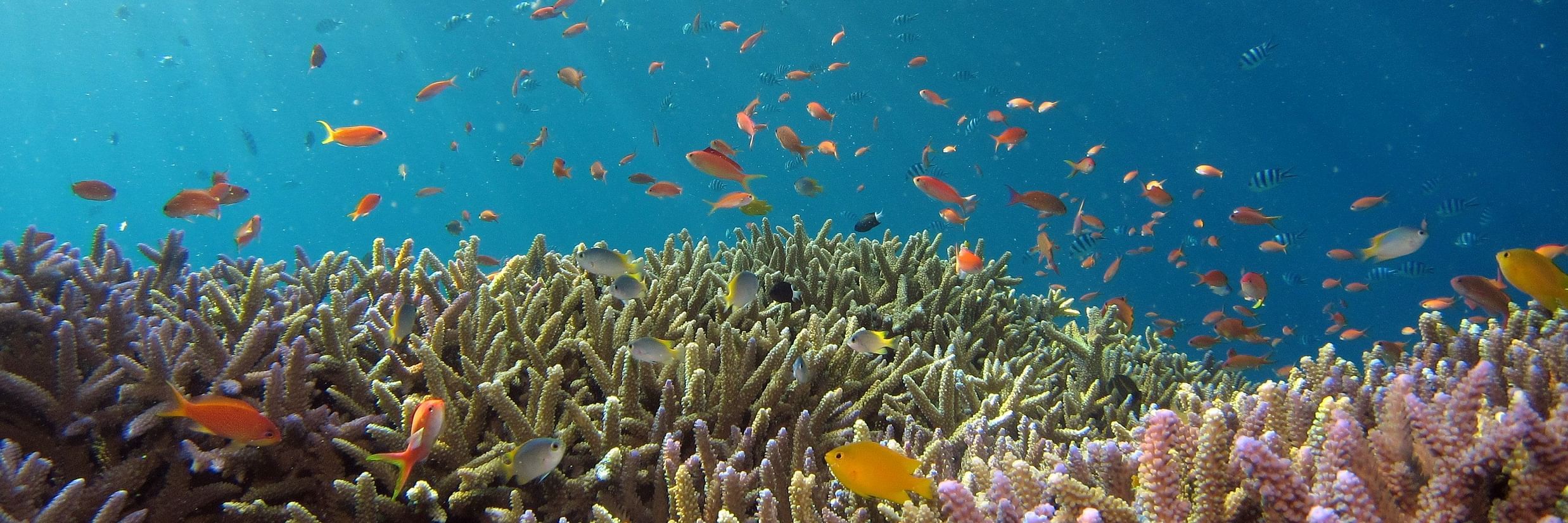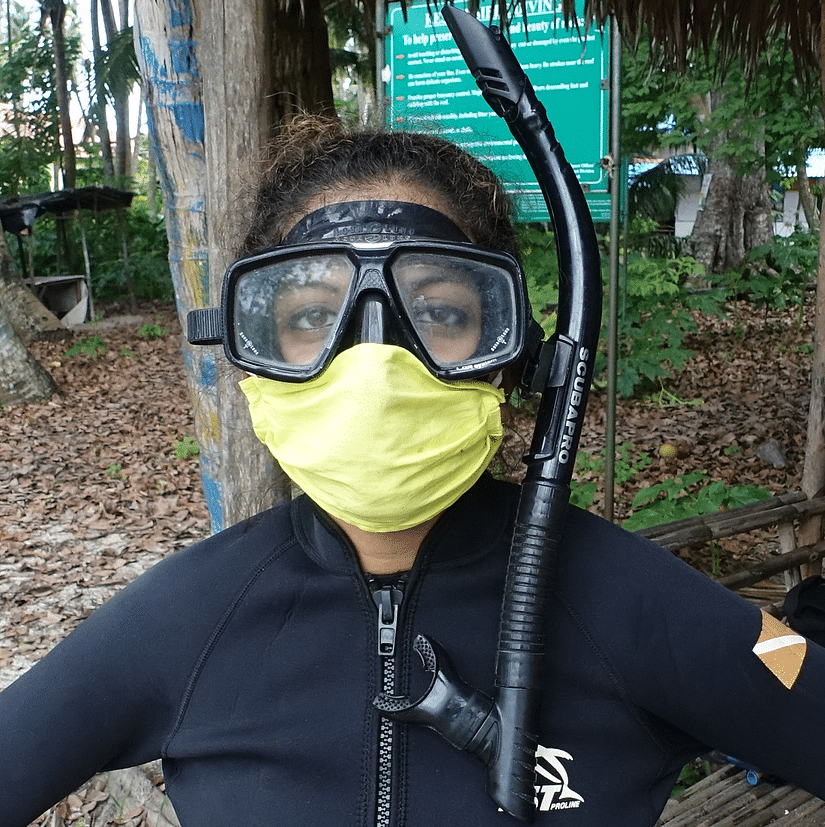BUY YOUR OWN AND/OR DISINFECT EQUIPMENT
Having a full set of personal scuba equipment is ideal. If it’s not possible, consider owning at least those diving equipment that comes in direct contact with your face and skin. These include a mask, snorkel, regulator mouthpiece (we give one to each of our divers free of cost to take back with them), and wetsuit. If you will be using rental equipment, make sure that they are thoroughly sanitized before using it. Disinfecting personal equipment before and after every use is a good practice too. Buy disinfectants that are safe for the reef.
NO MORE SPITTING IN THE MASK
Okay, we admit it. For the love of our delicate corals, we have long vouched that saliva is the best natural solution to ensure that your mask doesn’t get fogged up during the dive. However, going forward, droplets of any kind other than the ocean itself must be directed away from other people. Wind and current directions must be considered, and certainly no spitting into the masks. So, watch out for other people before you blast clear your snorkel and don’t be at the receiving end of it either.
Consider a simple banana peel, which works wonders for defogging masks. (Along with the peel, you also get the sweetest homegrown Andaman bananas when you come diving with us). If you must buy an anti-fog agent for your masks, please ensure that it’s reef-safe!
KEEP ALL DOCUMENTS HANDY
Review if your travel or medical insurance covers COVID-19 emergencies. When you come diving, please carry copies of your travel/medical insurance, diving insurance, COVID-19 test results, and medical clearance (if applicable). Do also remember to bring your PADI card (or equivalent certification copy) and a copy of your identification proof (passport and visa for foreigners) and keep any other relevant document readily accessible.
TRAVEL SAFELY
Last but not least, exercise caution whenever you are going out. After all, we are still in a pandemic and we wouldn’t advise anyone to approach travelling and diving like the old days. Extra care must be taken, and social distancing is to be maintained both on land and in the water. Keep sanitizing the hands whenever you touch high contact surfaces like doorknobs, railings, dive equipment, etc. Be mindful and please help us keep your dive experience safe and enjoyable.



